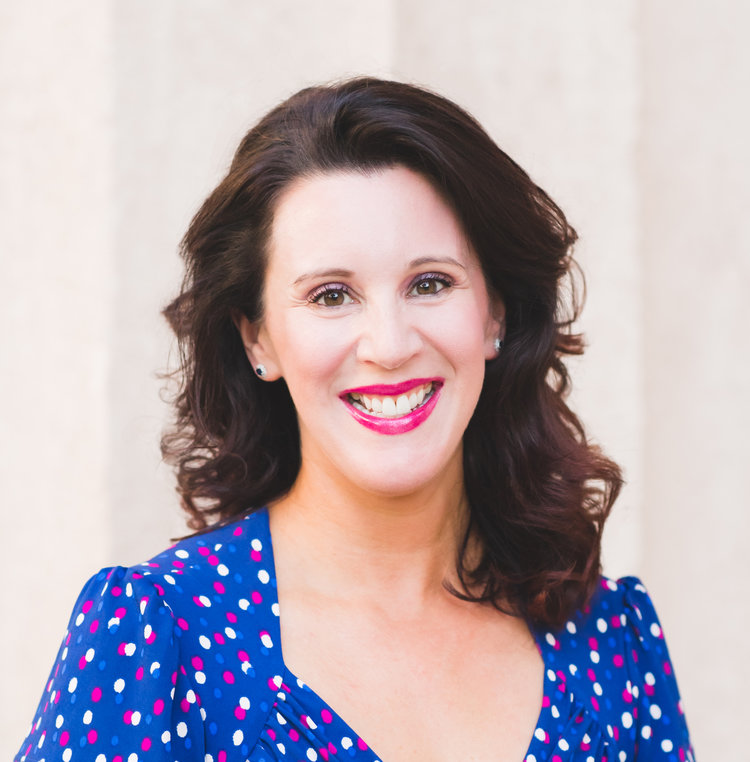
Author Hilary Levey Friedman grew up with a little glitz and glamour in her blood. After all, she is the daughter of Miss America 1970, Pamela Eldred.
Friedman has frequently served as a pageant judge and was a mentor to Miss America 2018, Cara Mund. So she is no stranger to pageants, though she has never competed in one herself.
As an undergraduate at Harvard, her thesis focused on child beauty pageants. Her first book, “Playing to Win” followed. Her most recent work, “Here She Is: The Complicated Reign of the Beauty Pageant in America” was inspired by her varied experiences with the pageant world. And interestingly enough, as a sociologist at Brown University, who teaches a seminar on beauty pageants, her book brings it all full circle, tracing the relationship between beauty pageants and American feminism.
 As a participant in the St. Louis Jewish Book Festival’s recent “Pop-Up” event, Friedman took the time to share some of her thoughts on American womanhood and the role of beauty pageants with Gazelle.
As a participant in the St. Louis Jewish Book Festival’s recent “Pop-Up” event, Friedman took the time to share some of her thoughts on American womanhood and the role of beauty pageants with Gazelle.
How does your book’s exploration of beauty pageants reflect feminism in our society? It is organized around the three major waves of feminism – suffrage, Women’s Rights Movement and the current Women’s March/#MeToo movement. At each point, pageants – like Miss America – have had a very public link to the feminist movement. The first Miss America contestants in 1921 wore banners popularized by suffragists who passed the 19th amendment in 1920; the 1968 protest outside the Miss America pageant is considered one of the foundational events of Second Wave feminism (and the source of the erroneous and pejorative term “bra burners”); and Donald Trump famously owned the Miss USA/Universe pageants, and Gretchen Carlson, Miss America 1989, sued Roger Ailes of Fox News for sexual harassment before taking over leadership of Miss America the following year.
What did you think of the recent change in pageants dropping swimsuit competition? Miss America made the decision to drop the swimsuit portion of competition in 2018, but swimsuit is very much alive and well in pageantry; for example, at the November 2020 Miss USA pageant. Dropping swimsuit in the Miss America pageant was not a shock as it has been discussed for decades (in the 1990s they even had a call-in phone vote during the live televised pageant) and was one of the major feminist critiques of the pageant. In the context of Third Wave feminism, the decision makes a lot of sense. I was surprised it was not replaced by another category, such as a fitness routine as other competitions like Distinguished Young Women and Miss America’s Outstanding Teen have done.
What compelled you to write this book? Not only is my mom a former Miss America, but one of my students, Cara Mund, became Miss America 2018. I am also very involved in the organized feminist movement (I’m president of the Rhode Island chapter of the National Organization for Women). The combination of those three things convinced me that I could offer a very different explanation of pageantry in American society than had been offered before.
What are your goals with the book? Being able to present a lot of data as a sociologist and make connections that have been overlooked, helps me achieve my goal of pushing people to think beyond stereotypes associated with pageants to see what pageant culture reveals about American femininity.
Like many things in life, Friedman said that beauty pageants are not all good nor all bad. She believes there are skills that women can learn by competing in beauty pageants. History shows that beauty pageants have often offered women opportunities for social mobility and a way to access funds for education. The contestants also develop skills to be successful in life, like speaking in public, interacting with media, and developing a platform that helps the community.
Friedman’s book, “Here She Is: The Complicated Reign of the Beauty Pageant in America” can be purchased online at mainstreetbooks.net and other book sellers.
Now in its 43rd year, the St. Louis Jewish Book Festival is nationally recognized for its excellence and size – it is one of the largest in the country with more than 10,000 audience members annually. People from all backgrounds and religions come to festival events to hear premier speakers, share their thoughts and ask questions. Recent events have been available to be enjoyed in the comfort of your own home.
The full-blown St. Louis Jewish Book Festival for 2021 is set for Nov. 7 through 18, celebrating authors, books and ideas, with additional author events year-round. The range of author topics includes business, cooking, economics, family, fiction, history, music, religion, sports and more.
Another popular event, the J’s St. Louis Jewish Film Festival, will be held June 6 to 13, showcasing national and international cinema that explores universal issues through traditional Jewish values, opposing viewpoints and new perspectives. The Jewish Film Festival now offers year-round opportunities to experience Jewish films from around the world. In 2021, all films will be presented virtually. For more information, visit stljewishbookfestival.org.





